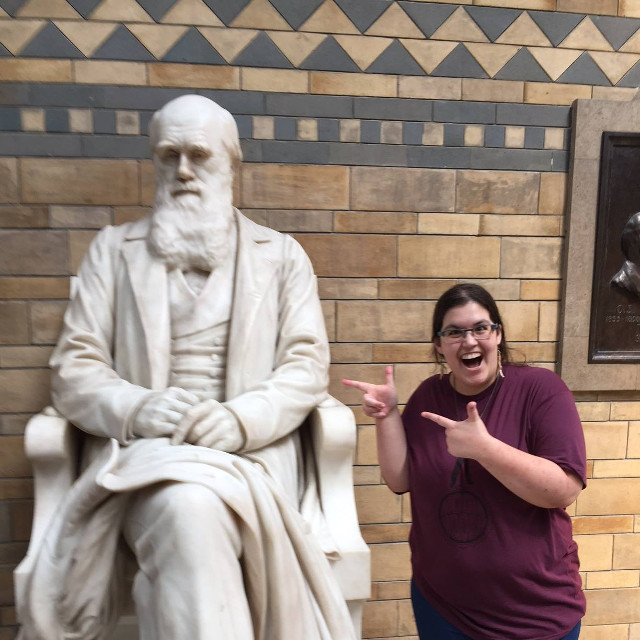
Me meeting Charles Darwin at the Natural History Museum in London!
Rating: 12/10—great conversationalist, loves to pose for photos, new best friend.
Hello!
I’m Laura, and I’m very excited to be here! I am certified in the state of Montana to teach secondary science (broadfield w/physics focus), and currently work in the physics department at Gonzaga University as a lab specialist, teaching an introductory physics course to non-STEM majors.
My broadest educational goals are
- to help students develop their self-advocacy and self-care skills,
- to make science exciting and accessible to all students, and
- to ensure that all my students graduate with the strong scientific literacy that will empower them as citizens.